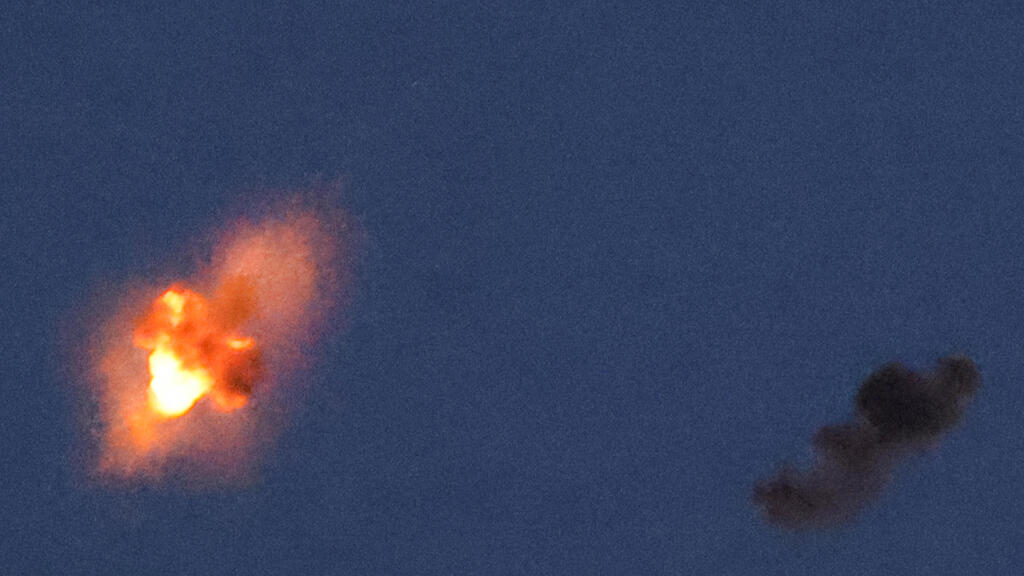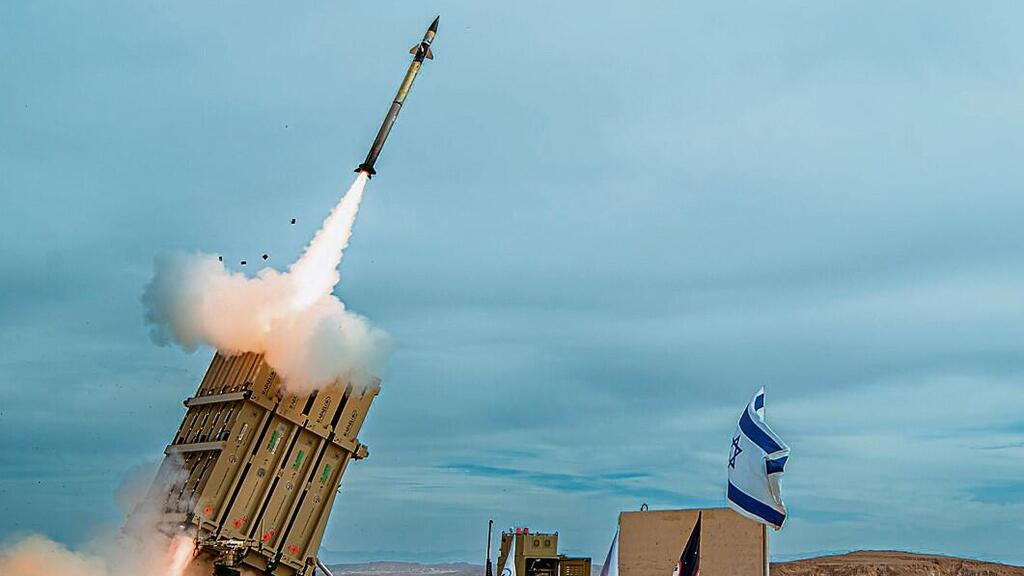Last week, President Donald Trump and Secretary of Defense Pete Hegseth unveiled their $175 billion plan for the Golden Dome, a missile defense system for the entire US modeled after Israel’s Iron Dome system. “Israel has it, other places have it, and the United States should have it too,” President Trump told Congress in March.
Trump said last week that the plan will take no more than three years to roll out, a timeline that has led some critics to express skepticism. Meanwhile, in Israel, the birthplace of the system the president aims to emulate, emerging defense tech experts are continuing to dream up and implement technological innovations.
3 View gallery


U.S. President Donald Trump announces plans for the Golden Dome aerial defense system
(Photo: Kevin Lamarque / Reuters)
3 View gallery


Iron Done inercepts rocket fire in northern Israel during the war
(Photo: Jim Urquhart / Reuters)
“Security doesn’t just happen. It’s a decades-long investment,” Doni Fogel, vice president of the Jerusalem College of Technology (JCT), said, speaking from a security tech conference held on the school’s campus.
JCT alumni have played central roles in developing defense systems like Arrow 3, David’s Sling, and the Iron Beam—a new laser-based interceptor that, according to Fogel, is expected to become operational by the end of 2025.
Fogel said that one alumna, who is publicly known only as “Miriam,” was asked in the middle of the war to develop a system that, at the time, “did not exist anywhere in the world.” Her team delivered it in three months—a process that normally would have taken two years.
The school has become adept at promoting innovation amid war. According to Benny Milgrom, head of the school’s electrical and electronics engineering department, more than 60% of the school’s students have been called up to reserve duty. “We’ve adapted. We provide academic support, tailored schedules, and even send instructors to military bases to help students keep up,” he said.
“Even while in uniform, many of our students are applying what they’ve learned here directly on the battlefield—developing technical solutions in real time,” he said. These range from field-ready adaptations in communications to drone interception technologies and sensor calibration. Some students, he noted, are involved in classified defense projects that he cannot disclose.
The presence of JCT in Israel’s capital brings a sense of innovation to the ancient city. Speaking at the conference to more than 200 defense professionals and officials, Jerusalem Mayor Moshe Lion revealed that the city was in talks about establishing a branch of the Defense Ministry’s research and development directorate, competing with the southern city of Be’er Sheva. “This would be a true revolution for Jerusalem,” Lion said.
One rapidly developing field in defense technology is artificial intelligence. David Karl, chief technology officer at Algolight—an Israeli firm specializing in AI-based defense applications—warned that Israel and its Western allies are falling behind in the AI race.
It’s a battle for the 21st century—and right now, we’re losing. China is integrating AI across its systems. We still talk about it in theory.
“This is not like the Cold War space race,” Karl said. “This time, it’s a battle for the 21st century—and right now, we’re losing. China is integrating AI across its systems. We still talk about it in theory.”
Karl emphasized that superiority in innovation is not enough. “The nation that embraces AI into its actual decision-making processes, not just its labs, will lead the century,” he said.
His company is currently developing a universal AI labeler capable of working across sensor modalities, from lidar to ultraviolet imaging.
Amid the talk of new technology, many of the conference attendees made clear that technological innovations must be part of a broader strategic plan. “People still measure power by the number of missiles, tanks, or aircraft,” Milgrom said. “But that framework is outdated. The war today is also psychological, digital, and global.”
He said that public perception, shaped by social media, narrative warfare, and misinformation, has become a primary arena of conflict. “One viral video can redirect international opinion faster than a missile can hit its target,” he warned. “The enemy is not only on the border, but also in the field.”
<< Get the Ynetnews app on your smartphone: Google Play: https://bit.ly/4eJ37pE | Apple App Store: https://bit.ly/3ZL7iNv >>
Gila Gamliel, minister of innovation, science, and technology, highlighted the need for long-term strategic planning, proposing turning the Abraham Accords into “Cyrus Accords” with the Iranian people. “Diplomatic outreach to regime-opposing Iranians must become part of our strategic toolbox,” she said.
People still measure power by the number of missiles, tanks, or aircraft. But that framework is outdated. The war today is also psychological, digital, and global.
Former Minister of Intelligence Maj. Gen. (ret.) Elazar Stern said that Israel must preserve its technological edge without discarding the hard lessons of the October 7 attacks. “If we maintain the professional culture of our security institutions, we will remain a global leader. But if we politicize leadership appointments, we risk everything,” he warned.
That critical tone was also present in an interview with State Comptroller Matanyahu Englman, who announced that his office would soon release a report on the deadly music festival attack on October 7, 2023—one that “diverges significantly” from the Israeli military’s internal investigations.
“We will name those responsible at the highest levels,” he said, referring to both political and military leadership. Englman also criticized the limited cooperation his office had received from some institutions, including the Military advocate general, and emphasized that Israeli citizens deserve full transparency and accountability.


